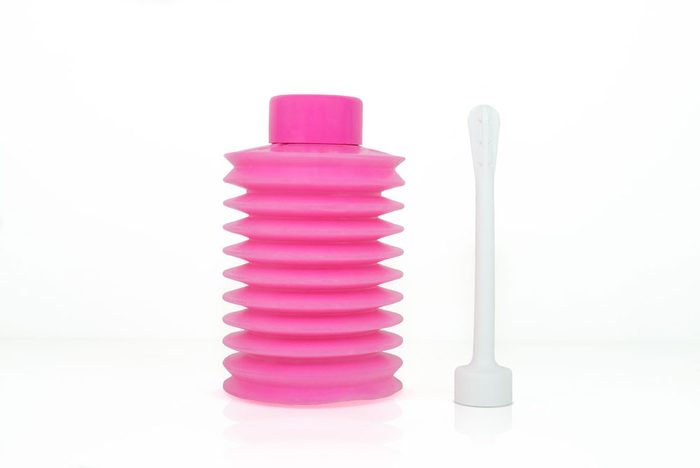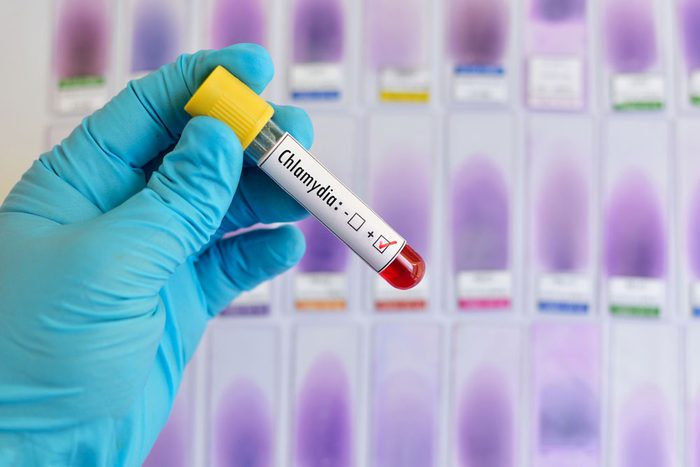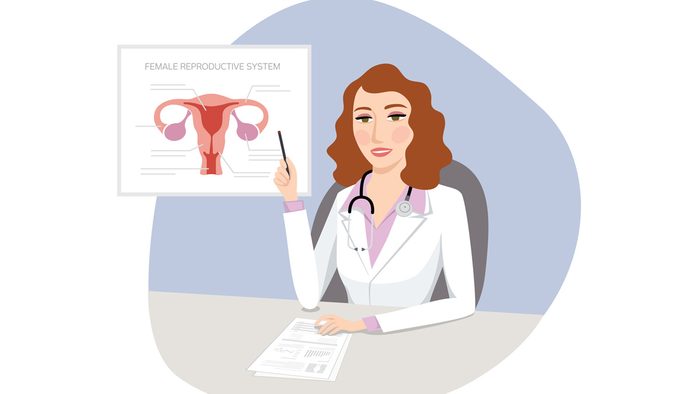The Things Your Gynecologist Wants You to Know
It’s the yearly check-up that many women have anxiety about. From getting into the stirrups and wondering what your doctor is thinking, to worrying about the results of your Pap test, it can be a high stress ordeal. The truth is your gynecologist isn’t judging you at all; in fact she wants you to feel comfortable, ask questions and be honest. To get the full scoop on what your gynecologist wants you to know, we spoke to Dr. Amanda Selk, Obstetrician and Gynecologist at the Women’s College Hospital in Toronto, who shared her candid thoughts.

An Abnormal Pap Doesn’t Mean Cancer
Getting back an abnormal Pap can seem alarming, but the statistics for cervical cancer in Canada is less than one percent of all cancers in women, thanks in part to women scheduling regular Pap tests. “When we do find abnormalities they often improve, and if they don’t, we treat them so they don’t become cancer,” explains Dr. Selk. So while an abnormal result should be looked into, it doesn’t automatically mean cancer.
Related: 20 Things Every Woman Over 30 Should Know About Sex

They Don’t Care About Your Grooming Habits
Forget planning your waxing session around your gynecologist appointment because their focus isn’t on whether or not your legs are smooth or your bikini line is even. “We don’t even notice,” admits Dr. Selk when referring to your hair down there. They understand grooming practices are cultural and don’t care how much or little you have going on.

Feminine Hygiene Products Are a No-No
Despite being available for purchase, gynecologists are not fans of women using feminine hygiene products. “Women shouldn’t use douches, hygiene wipes or sprays,” says Dr. Selk. “You’re more likely to get a gynecological problem for using them.” The vagina already does an amazing job at keeping itself cleaned and pH balanced, so you’re actually interfering with that process when you use a soap or douche — even if it’s marketed specifically for your vagina. Bottom line: don’t use them.
Related: 15 Surprising Things Doctors Want Women to Know About Endometriosis

Itching and Discharge Doesn’t Automatically Mean a Yeast Infection
If you think you have a yeast infection and have tried an over-the-counter medication and nothing’s changed, you probably don’t have one. “Most of the time itching and discharge is not a yeast infection,” admits Dr. Selk. “It could be an STD or it could just be a skin irritation.” The only way to be sure is to get it checked out.
Related: What a Naturopath Would Tell You About Your Yeast Infection

Don’t Cancel Your Appointment Just Because You’re on Your Period
In case you forgot, most gynecologists deliver babies, so blood isn’t going to make them queasy. If you’re scheduled to have a Pap and it happens to fall on a day during your menstrual cycle, it likely won’t be an issue if it’s light. However it might be difficult to get a proper swab if you’re looking to get tested for an infection.
Related: 11 Sneaky Reasons Behind a Missed Period (Besides Pregnancy)

Go For a Yearly Check-Up Even if You’re Not Having a Pap
Your annual physical is more than just a Pap test, so don’t skip it just because you’re not due for one. It’s an important time to check in on other aspects of your health, including your lifestyle habits, like sexual health, exercise and alcohol consumption. Plus, get a read on your vital signs, such as blood pressure and weight. Keeping your doctor in the know today will help her treat you better down the road. Here’s what you should know about getting a pap test.

Ask Them Anything, They’ve Heard (and Seen) it All
There’s no need to be embarrassed, scared or worried in the gynecologist’s office. Whatever you want to ask, chances are they’ve heard it before. “It’s unlikely you’re going to bring something up we’ve never seen,” says Dr. Selk. It’s best to get the issue off your mind and get the resolution you need.
Related: Sex In Your 20s — What Every Woman Should Know (And Talk About)

Don’t Lie About Your Sex Life
Your gynecologist wants you to know that they’re not there to judge you on your sex life. Details like whether or not you’re sexually active, gender preference or multiple partners are things you should feel comfortable sharing. They help the doctor asses whether or not you should consider being screened for STDs and she can offer suggestions on contraception methods.

Ask to Be Screened for STDs
When you get a Pap test you’re not automatically being tested for STDs. Plus, not every STD can be tested with a swab. The most common STD tests for women are gonorrhea and chlamydia, but if you have concerns after having unprotected sex you can request additional tests such as those for HIV, syphilis and hepatitis C.

They Can Help You Find a Contraception Method
There’s not one type of contraception that works for everyone, which is why you should talk to your gynecologist if you don’t like the one you’re using. Whether you can’t remember to take a pill everyday, suffer from acne or migraines, they can help recommend options. “It can be confusing,” admits Dr. Selk. “There are a lot out there and we can help find the right one for you.”
Related: 8 Things You Should Know About IUDs

Start Thinking About Your Fertility
What many women don’t realize is that their fertility decreases every year, sharply declining at age 35. It’s not just about getting pregnant, but the increased risks associated with the pregnancy itself. And while your gynecologist is there to help, she isn’t a miracle worker. “IVF isn’t the answer to everything,” says Dr. Selk. “There’s not a guarantee we have the intervention to get you pregnant when you want to.”

Don’t Suffer from Period Pain
There’s no need to suffer needlessly from menstrual cramps. If painful periods are preventing you from participating in normal activities, bring it up with your gynecologist, and she can offer different remedies or perform tests to make sure nothing else is going on.
Related: Julianne Hough Opens Up On Social Media About Her Struggle With Endometriosis

Share Your Family Medical History
There’s a good reason why your doctor asks about your family’s medical history. “The more information a patient gives us the more it helps us,” shares Dr. Selk. “For example certain cancers run in families and certain diseases run in certain backgrounds.” Armed with these details your doctor can screen you early and offer preventative advice. Not sure what you need to know? Here are 5 health questions to ask your mother about.

Stop Smoking Now
It’s no secret smoking isn’t good for your lungs and heart, but what women may not realize is that it’s also not good for your reproductive health. “It affects your fertility, your risk for cervical cancer and you’re more likely to have earlier menopause,” explains Dr. Selk. For example, the HPV virus, which causes most cervical cancer, is much harder to clear if you’re a smoker.

They Can’t Read Your Mind
Doctors have a lot of skills, but one they don’t have is telepathy. “You have to tell us what the issue is,” urges Dr. Selk. “Our goal is to help.” The more information you share with your doctor, the better they can diagnose and treat your concerns. Here are 8 secrets you should disclose to your gynecologist.

